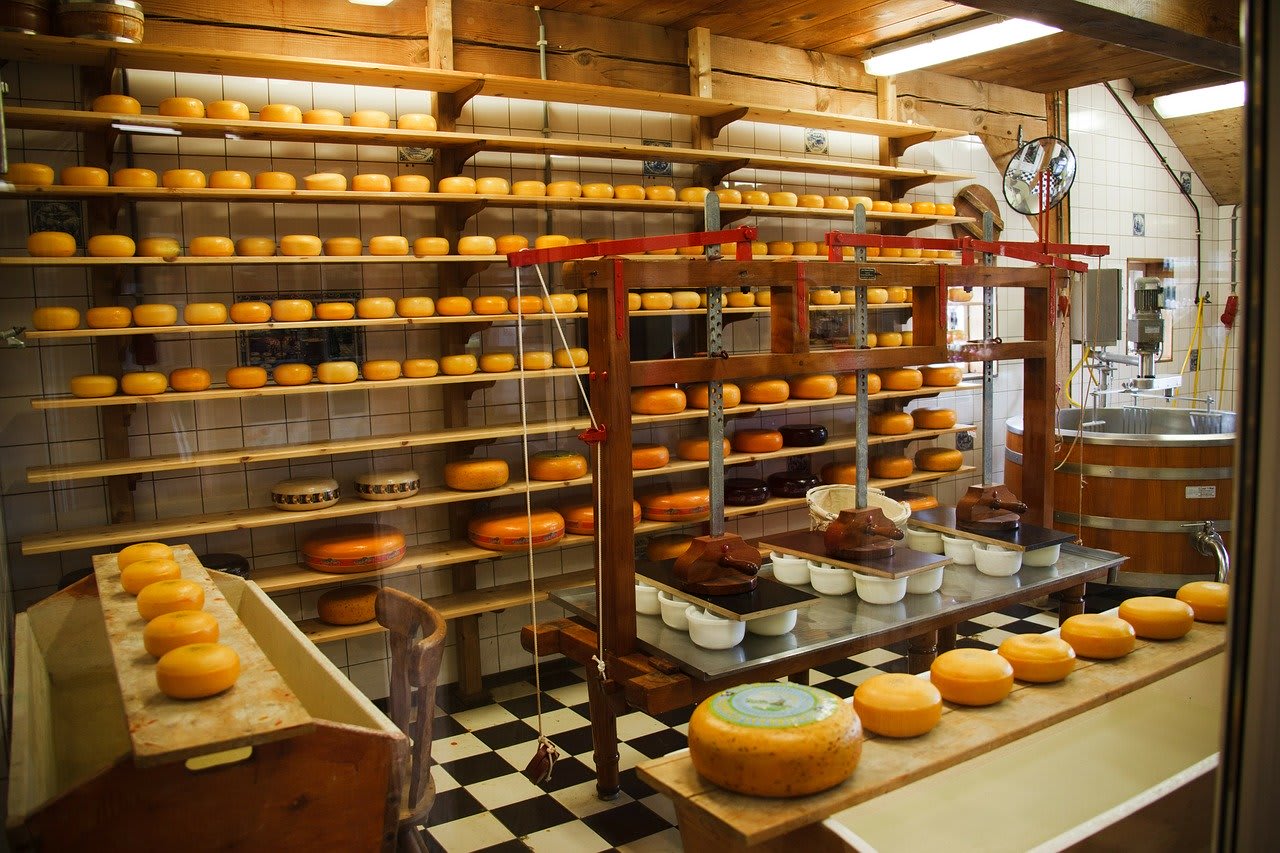
MSc/PGDip in Food Production Management
University of Nottingham, Faculty of Science

Key Information
Select location
Campus location
Nottingham, United Kingdom
Languages
English
Study format
On-Campus
Duration
1 - 2 year
Pace
Full time, Part time
Tuition fees
GBP 9,045 / per year **
Application deadline
Request info *
Earliest start date
Request info
* Although most postgraduate courses do not formally close for applications, places are limited and courses may become full. International applicants should apply as early as possible. For 2021 entry this will be early August 2021. The deadline will be added here once confirmed.
** MSc UK/EU fees; £25,695: MSc international fees; £6,030: PGDip UK/EU fees; £17,130: PGDip international fees
Scholarships
Explore scholarship opportunities to help fund your studies
Introduction
This masters course balances a scientific discipline with business acumen. You'll learn how to develop safe, nutritious and sustainable food. This is essential in an ever-changing global food supply chain.
You'll be taught by an experienced academic team with a technical background across the global food industry. Business School modules will also develop your management skills.
Factory visits and high-profile speakers ensure that you will get plenty of industry exposure throughout the year. We have links to global food companies and smaller companies through the Food Innovation Centre based on campus.
You'll learn through lectures and practical activities in our Food Processing Facility. Taking real scenarios from industry to problem-solve solutions. Core modules cover food manufacture, quality management and supply chain. You'll put these skills into practice to develop a new product. Presenting this as a team in a showcase with industry judges.
There is an opportunity to complete your research project in collaboration with the food industry. Many students do this on an industry placement. Projects can be factory, laboratory or literature-based.
Why choose this course?
- Talent development - advance your career in food with our competency framework tool
- Food science facility - you'll use our Food Processing Facility to replicate industry and develop new product concepts
- World-leading research - our research environment was awarded 100% for agriculture, veterinary and food science (Research Excellence Framework 2014)
- Combined skills - study business and food science leading to technical and managerial careers
- Industry experience - through factory visits and guest lectures from leaders in the food industry
Course content
This course is divided into three parts:
- 120 credits of taught modules in both the autumn and spring semesters
- 60 credits research project in the summer
For a master, a total of 180 credits is required. A diploma is awarded if you choose to take only the taught element worth 120 credits.
In the autumn semester and spring semester, you will normally study 60 credits of food sciences modules and 60 credits of management modules. However, there is some flexibility to take into account your background and interests.
The research projects involve collaboration with the food industry, either at the university or working within a company. The project will provide an insight into the scientific principles of food production processes or the application of modern management techniques to food manufacture.
Modules
Core modules
- Factory Design and Operations for Food Production 20 credits
- Core Skills and Technologies of Food Manufacture 40 credits
- Food Manufacturing Case Studies 10 credits
- Postgraduate Research Project 60 credits
- Quality Management and Quality Techniques for Industry 20 credits
- Supply Chain Planning and Management
Optional modules
- Managing Projects
- The Global Food Industry 10 credits
- Food Flavour 10 credits
- E-Business
- Service Operations Management
- Managing Contemporary Operations: Fundamentals and Challenges
Learning and assessment
How you will learn
- Seminars
- Lectures
- Practical classes
- Tutorials
- Workshops
- eLearning
Although lectures and practical classes still play an important role as the course progresses, your learning experience is enhanced by placing greater reliance on self-directed study, written dissertations and research project work.
How you will be assessed
- Written exam
- Lab reports
- Presentation
- Essay
- Coursework
- Dissertation
Modules are assessed using a variety of individual assessment types which are weighted to calculate your final mark for each module. Typically all taught modules have one piece of coursework in addition to a final exam.
You will need an average mark of 50% to pass the MSc overall. You will be given a copy of our marking criteria when you start the course and will receive regular feedback from your tutors.
Contact time and study hours
The number of formal contact hours varies depending on the optional modules you are studying. As a guide, in the autumn and spring semesters, you will typically spend around 25 hours per week in classes.
You will work on your research project between June and September, either based at the University or within an industry placement. You would be supervised for 3 hours per week, on average.
Teaching is provided by teaching fellows, assistant professors, associate professors and professors. Technical staff, PhD students and post-doctoral researchers provide additional support in small group and practical classes.
There will be around 30 students on this course. Depending on your modules, you may study with around 50 other students.
Entry requirements
All candidates are considered on an individual basis and we accept a broad range of qualifications. The entrance requirements below apply to 2021 entry.
Home/ UK students
| Undergraduate degree | 2:2 level or above (or its international equivalent) in a natural or applied science discipline or in an engineering discipline such as chemical, agricultural or food engineering. |
EU/ International students
| Undergraduate degree | 2:2 level or above (or its international equivalent) in a natural or applied science discipline or in an engineering discipline such as chemical, agricultural or food engineering. |
| International and EU equivalents | We accept a wide range of qualifications from all over the world. |
| IELTS | 6.5 (no less than 6.0 in any element) |
| English language requirements | As well as IELTS (listed above), we also accept other English language qualifications. This includes TOEFL iBT, Pearson PTE, GCSE, IB and O level English. |
English language support
If you need support to meet the required level, you may be able to attend a presessional course. Our Centre for English Language Education is accredited by the British Council for the teaching of English in the UK.
For presessional English courses, you must take IELTS for UKVI to meet visa regulations.
If you successfully complete your presessional course to the required level, you can then progress to your degree course. This means that you won't need to retake IELTS or equivalent.
Alternative qualifications
We recognise that applicants have a variety of experiences and follow different pathways to postgraduate study.
We treat all applicants with alternative qualifications on an individual basis. We may also consider relevant work experience.
If you are unsure whether your qualifications or work experience are relevant, contact us.

Where you will learn
Sutton Bonington Campus
The Schools of Biosciences and Veterinary Medicine are based here. Specialist facilities include the world-leading teaching and research laboratories, clinical skills suite and food processing hall. There is also a University farm and dairy centre, and temperature-controlled glasshouses.
There is a great sense of community, and the student union plays a big part in campus life. You will have access to student services, a library, sports centre and places to eat. You can travel to University Park Campus in around 25 minutes on our free hopper bus, and Nottingham city centre via the tram network.
Food Processing Facility
You will use production-scale equipment in this facility to develop new food products. It contains a wide range of commercial-scale food production and testing equipment, including an extruder, homogeniser, texture and viscosity analysers.
A quality control laboratory and kitchen are used for testing new product development.
Jubilee Campus
Jubilee Campus has eco-friendly and sustainable buildings, alongside green spaces, wildlife and a lake. It has won a national Green Flag award every year since 2013.
This campus is home to our business, education and computer science schools. Alongside a sports centre and student accommodation, we've developed new facilities such as the Advanced Manufacturing Building.
You can walk to University Park Campus in around 20 minutes or catch a free hopper bus. Nottingham city centre is 20 minutes away by public bus.
Careers
Careers advice
We offer individual careers support for all postgraduate students.
Expert staff can help you research career options and job vacancies, build your CV or résumé, develop your interview skills and meet employers.
More than 1,500 employers advertise graduate jobs and internships through our online vacancy service. We host regular careers fairs, including specialist fairs for different sectors.
Job prospects
Graduate destinations
Our graduates work in a wide range of roles across the world. Here are some recent examples:
- Quality Manager, Greencore, UK
- Technical Manager, AB World Food Ltd
- Senior Scientist, Mondelēz International
- Senior Sensory Scientist, GlaxoSmithKline
- Scientific Officer and Policy Advisor, DEFRA, UK
- Scientist, Research and Development, Unilever, China
Career progression
88.5% of postgraduates from the School of Biosciences secured graduate-level employment or further study within 15 months of graduation. The average annual salary for these graduates was £28,711.*
* HESA Graduate Outcomes in 2020. The Graduate Outcomes % is derived using The Guardian University Guide methodology. The average annual salary is based on graduates working full-time within the UK.
Placements
You will complete a three-month research project, supervised by an experienced member of academic staff. The majority of projects involve collaboration with the food industry, as an industry placement within a company.
Previous students have completed placements with Kellogg’s, Nestle and Premier Foods.
Dedicated professional staff work on a one-to-one basis with you to help you find and prepare for the industry placement.